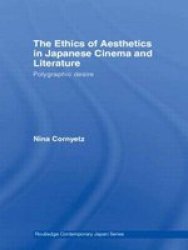Description
This essay discusses the ethics of aesthetics in Japanese literature and cinema, specifically how the collapse of the Marxist movement in the 1960s had a significant impact on the way these authors and filmmakers viewed beauty.
This is an innovative, scholarly and original study of the ethics of modern Japanese aesthetics from the 1930s, through the Second World War and into the post-war period. Nina Cornyetz embarks on new and unprecedented readings of some of the most significant literary and film texts of the Japanese canon, for instance works by Kawabata Yasunari, Mishima Yukio, Abe Kb and Shinoda Masahiro, all renowned for their texts' aesthetic and philosophic brilliance. Cornyetz uniquely opens up the field in a fresh and controversial way by showing how these authors and filmmakers' concepts of beauty and relation to others were, in fact, deeply impacted by political and social factors. Probing questions are asked such as:
- How did Japanese fascism and imperialism ideologically, politically and aesthetically impact on these literary/cinematic giants?
- How did the emperor as the 'nodal point' for Japanese national identity affect their ethics?
- What were the repercussions of the virtual collapse of the Marxist movement in the 1960s?
- What are the similarities and differences between pre-war, wartime and post-war ideals of beauty and those of fascist aesthetics in general?
This ground-breaking work is truly interdisciplinary and will appeal to students and scholars of Japanese literature, film, gender, culture, history and even psychoanalytic theory.
